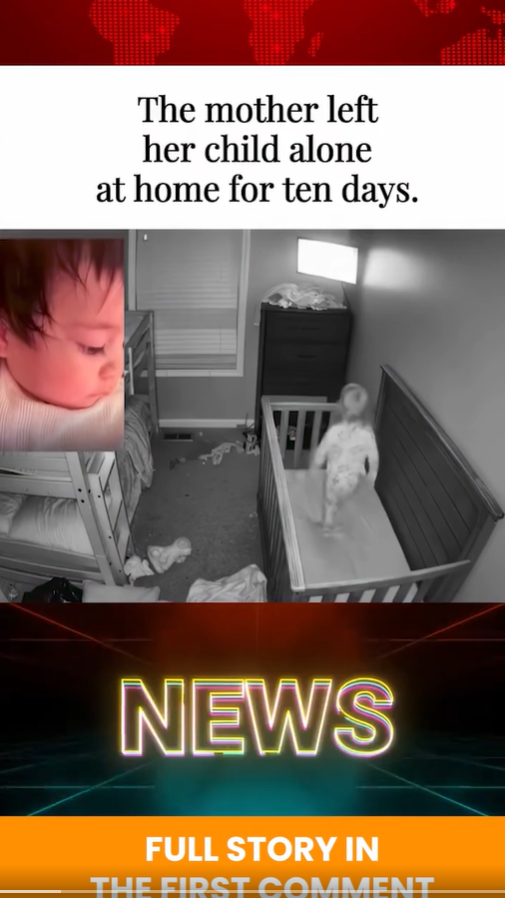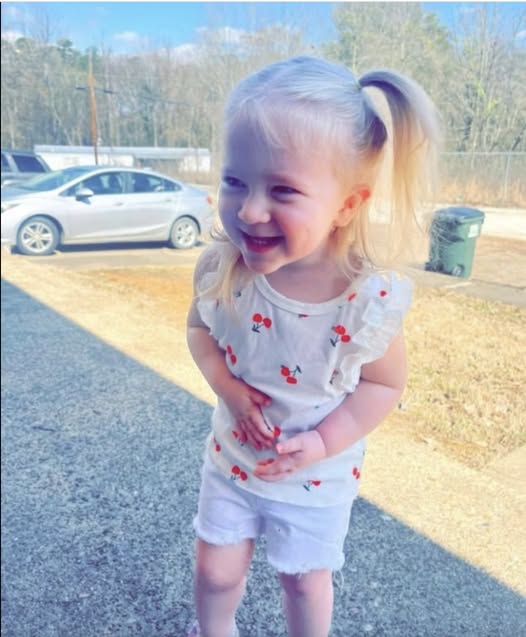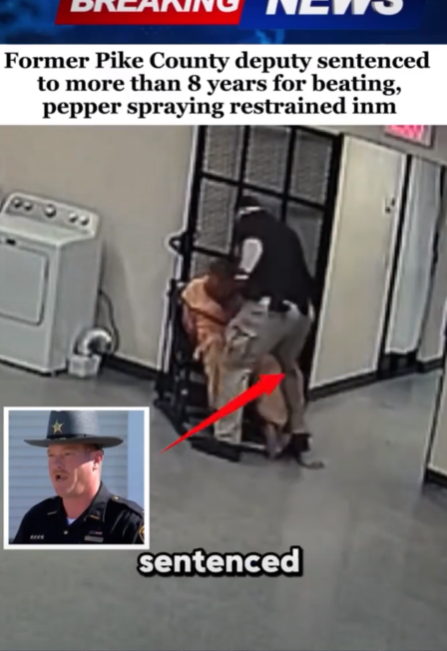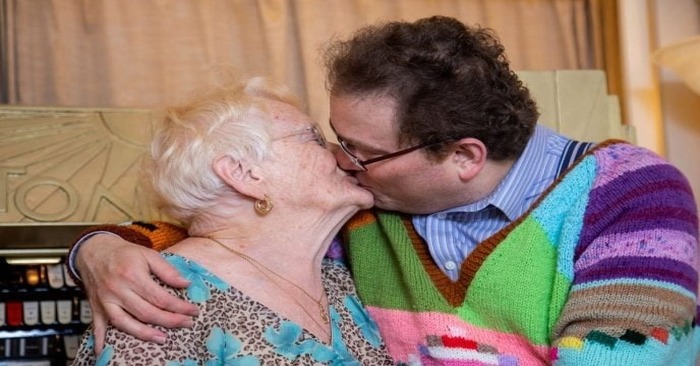Introduction
In March 2024, the tragic story of a Cleveland mother, Kristel Candelario, made headlines across the United States and beyond. The case revolved around her decision to leave her 16-month-old daughter, Jailyn, alone at home for ten days while she traveled out of state and abroad. The devastating outcome — the loss of a young life — shocked communities and ignited intense public debate about parental responsibility, the role of mental health in decision-making, and the systems in place to protect vulnerable children.
This article provides a comprehensive, neutral examination of the case, the legal process, and the broader issues it highlights. Beyond the immediate facts, it looks at the challenges faced by struggling parents, the importance of community awareness, and the lessons society can draw to prevent similar tragedies in the future.
Background of the Case
Kristel Candelario was a 32-year-old resident of Cleveland, Ohio, at the time of the incident. In June 2023, she made the decision to take a vacation to Puerto Rico and Detroit. During her absence, she left her daughter, Jailyn, who was just 16 months old, at home alone in a playpen.
Reports from neighbors and later investigations revealed that Jailyn was left with only a few bottles of milk and no adult supervision. Over the following days, neighbors reported hearing the child crying, but no one appeared to intervene directly, assuming perhaps that the cries were within the bounds of typical household sounds. Unfortunately, Jailyn’s basic needs for food, water, and care went unmet.
When Kristel returned ten days later, she found her daughter had passed away from starvation and dehydration. The situation not only devastated those who learned of it but also prompted deep questions about how such a tragedy could occur and what might have been done to prevent it.
The Legal Proceedings
After her arrest, Kristel faced serious charges, including aggravated murder and child endangerment. In February 2024, she pleaded guilty. At the sentencing in March, the presiding judge emphasized the severity of the case, describing it as “the ultimate betrayal” of a parent’s duty to their child.
The judge’s remarks underscored the stark contrast between the support Kristel would receive in prison — consistent meals, water, and shelter — and the neglect her daughter had suffered in her absence. Prosecutors framed the incident as one of deliberate neglect rather than a mistake or momentary lapse, emphasizing the duration of the absence and the conscious decision to travel while leaving a toddler alone.
Ultimately, Kristel was sentenced to life in prison without the possibility of parole. For many, the sentence reflected the seriousness of the crime and served as a signal of accountability when the most vulnerable are harmed.
The Mental Health Dimension
One of the central elements raised in Kristel’s defense was her struggle with mental health. Her legal team argued that she had been dealing with psychological difficulties and had stopped taking prescribed medication prior to the incident. They presented this as context, though not as justification, for her actions.
Mental health challenges can complicate parenting, often leaving individuals feeling isolated, overwhelmed, or unable to cope with everyday responsibilities. However, as prosecutors and the judge noted, millions of parents face similar struggles without endangering their children. While mental health support is crucial, it does not absolve individuals of responsibility when another person’s life — particularly that of a dependent child — is at stake.
The case highlighted the pressing need for accessible mental health resources and community safety nets. Parents who struggle require outlets for support, whether through extended family, social services, or medical professionals. Society must balance compassion for those with mental health issues with the imperative of protecting children who cannot advocate for themselves.
Community Reactions
The story quickly spread across social media and news outlets, sparking widespread outrage and grief. Commenters from around the world expressed disbelief and sorrow. Phrases such as “How could anyone do this?” and “My heart breaks for that baby” were common. Others used the case as a reminder of the importance of seeking help during times of struggle, with many urging parents not to suffer in silence but to reach out to friends, relatives, or professionals.
Local communities in Cleveland also grappled with the case. Neighbors who recalled hearing Jailyn’s cries were left with feelings of guilt and regret, wondering if more proactive intervention might have saved her life. While hindsight often provides clarity, the situation also revealed how difficult it can be for bystanders to gauge the severity of what they hear or observe.
Broader Social Issues
1. The Importance of Child Protection Systems
The case has reignited conversations about child protection mechanisms in the United States. How can authorities ensure that children are safe in their homes, especially when neighbors or relatives may notice warning signs but hesitate to act?
Child protective services exist to intervene in cases of neglect and abuse, but they often rely on reports from community members. Education about when and how to raise concerns could help prevent future tragedies.
2. Parenting Challenges in Modern Society
Parenting young children is demanding under any circumstances. Financial stress, lack of family support, and personal struggles can make the task even harder. In Kristel’s case, the absence of a reliable support system may have contributed to her poor decision-making. This underscores the value of community resources, such as parenting support groups, crisis hotlines, and affordable childcare.
3. Mental Health Awareness
The intersection of parenting and mental health has become increasingly visible in public discourse. This case adds to the evidence that untreated mental health issues can have devastating consequences, not only for individuals but also for those who depend on them. Expanding access to counseling, therapy, and affordable healthcare remains a societal priority.
4. The Role of Neighbors and Community Members
One of the most haunting details of the case was the fact that neighbors heard Jailyn crying. While some may have considered contacting authorities, no one ultimately intervened in a way that prevented tragedy. This situation raises questions about community responsibility. Should people act when they hear repeated distress from a child? What level of intervention is appropriate? These questions remain difficult but are essential for communities to discuss.
Legal and Ethical Reflections
The justice system’s handling of the case demonstrates the balance courts must strike between compassion and accountability. On one hand, Kristel’s struggles with mental health are real and should not be dismissed. On the other, the duty of care toward a dependent child is paramount, and failure in this regard cannot go unpunished.
Legal experts note that the life sentence serves as both a consequence for the individual and a deterrent for others who might consider similar actions. Ethically, the case raises uncomfortable truths about society’s duty to protect children when parents fail to do so.
Lessons for Society
The Cleveland case is not just a story of one family’s tragedy; it is a call for reflection and action. Key lessons include:
- The Irreplaceable Duty of Parents
Parents and guardians bear the ultimate responsibility for their children’s safety. No matter the circumstances, leaving a young child unsupervised for extended periods is dangerous and unacceptable. - The Importance of Mental Health Support
Parents struggling with mental health must have accessible avenues for support. Communities, healthcare providers, and policymakers should work together to reduce stigma and provide affordable care. - Community Awareness Saves Lives
Neighbors and community members play a crucial role in safeguarding children. Awareness campaigns can empower people to report signs of neglect without fear of overstepping. - Policy and System Improvements
Lawmakers may need to review child protection systems to identify gaps and ensure that vulnerable children do not slip through unnoticed.
Moving Forward
While the details of the case are deeply saddening, focusing solely on grief does little to bring about change. Instead, communities, policymakers, and families can honor Jailyn’s memory by working to prevent similar tragedies. This involves strengthening mental health resources, supporting parents in need, and fostering a culture of vigilance where people are unafraid to speak up when a child might be in danger.
Conclusion
The sentencing of Kristel Candelario to life in prison without parole closed one chapter of a devastating story, but the broader issues it exposed remain unresolved. Her daughter’s passing is a sobering reminder of the consequences of neglect, the importance of parental responsibility, and the critical role communities play in protecting children.
By reflecting on this case with empathy and responsibility, society has the opportunity to learn and take proactive steps. Whether through stronger support systems, better mental health care, or increased community awareness, the goal must be to ensure that no child’s life is endangered by preventable neglect.




